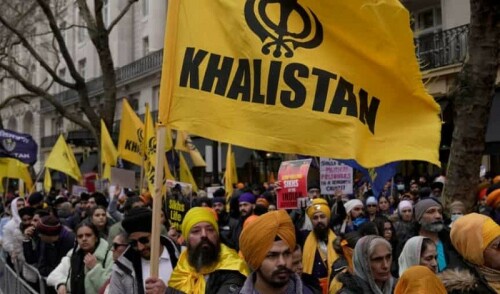India is not looking to reduce the number of troops along the northern frontier in winter, the country’s army chief said on Monday adding that it will review summer deployment based on the outcome of negotiations with China.
Four years ago, 20 Indian and four Chinese soldiers were killed during border clashes following which both sides stopped patrolling several points on the border in Ladakh to avoid new confrontations, while moving tens of thousands of new troops and military equipment closer to the freezing mountainous region.
New Delhi and Beijing reached a deal in October last year to resolve the four-year military stand-off and few days later they pulled back troops from the disputed border.
“During winter deployment, the number of troops come down. So therefore, at least in the winter strategy, we are not looking forward to any reduction of troops,” army chief Upendra Dwivedi told reporters in New Delhi.
Dwivedi said a decision on summer deployment would depend on how negotiations and talks with China progress.
“When it comes to the summer strategy, we’ll take a review based on that time, how many negotiations and meetings have taken place,” he said.
India and China share a poorly demarcated border which runs along the Himalayas and has been a source of tension between the neighbours for decades, including a brief but bloody war in 1962.
Ties stabilised after diplomatic talks and a series of pacts were reached from 1991 and trade and business links boomed until they were disrupted by the clashes in the summer of 2020.
Indian troops kill five Maoists; bomb wounds officers
Separately, Indian troops killed at least five Maoist guerillas in the latest push to crush the long-running insurgency, with a separate bomb blast wounding two policemen, officers said on Sunday.
More than 10,000 people have died in the decades-long insurgency waged by the rebels, who say they are fighting for the rights of marginalised indigenous people in India’s resource-rich central regions.
Earlier in the month, Indian Maoist guerrillas killed nine members of the security forces on Monday by detonating a roadside bomb that tossed their vehicle into the air, police had said.
“The security forces have recovered five bodies of the Maoists,” police inspector general P. Sunderraj told AFP, describing a firefight in the dense forests of Bijapur district in the central state of Chhattisgarh.
Weapons taken from the dead bodies of the rebels — three men and two women — included a grenade launcher and rifles, he said.
In a separate incident, a homemade landmine detonated in Bijapur district, wounding two policemen.
Government forces have stepped up efforts to defeat the decades-long guerilla conflict, with around 287 rebels killed in 2024, according to official figures.
The rebels, also known as Naxalites after the district where their armed campaign began in 1967, were inspired by the Chinese revolutionary leader Mao Zedong.
Around 1,000 suspected Naxalites were arrested and 837 surrendered last year.
Amit Shah, India’s interior minister, has repeatedly set March 2026 as the deadline for defeating the Maoists.














































